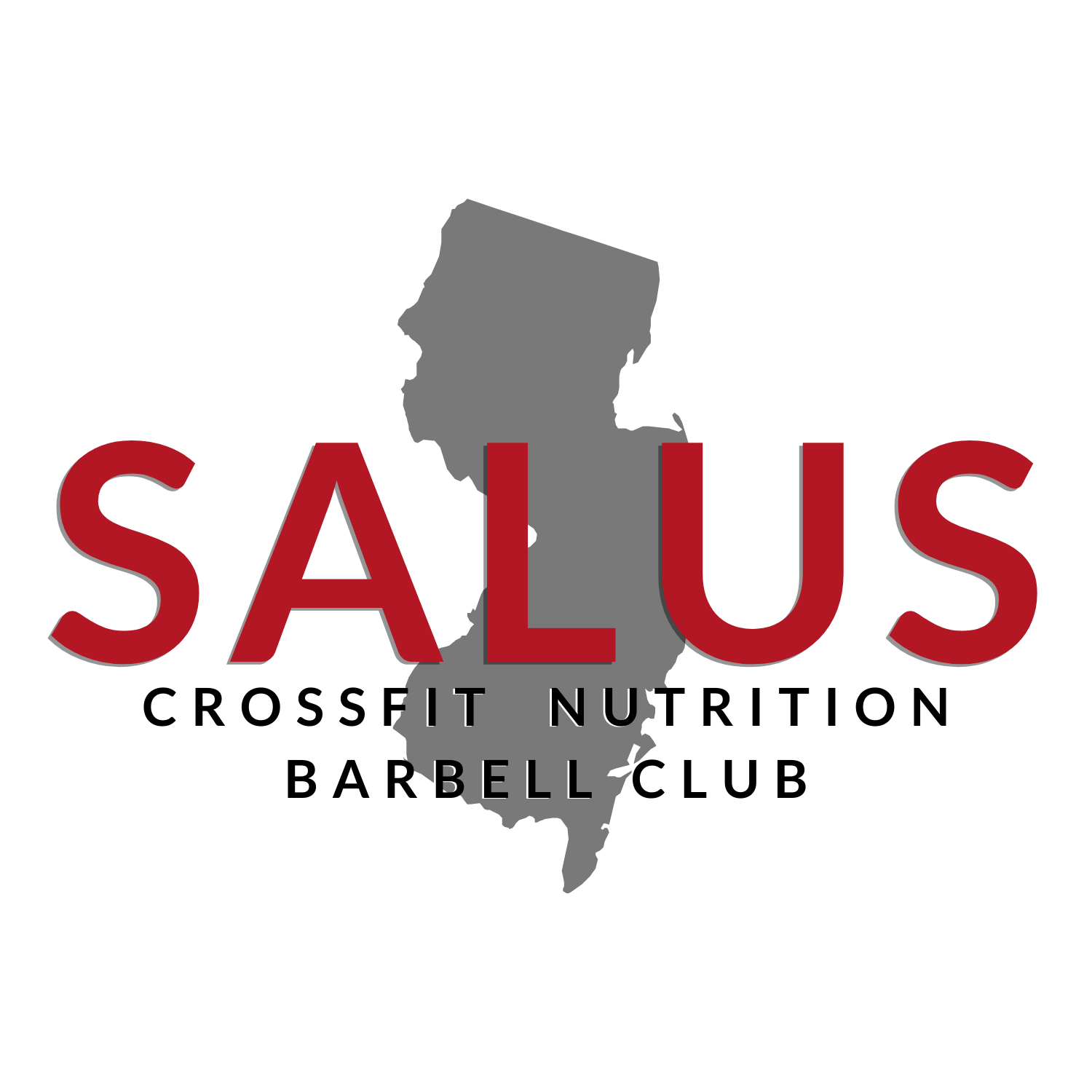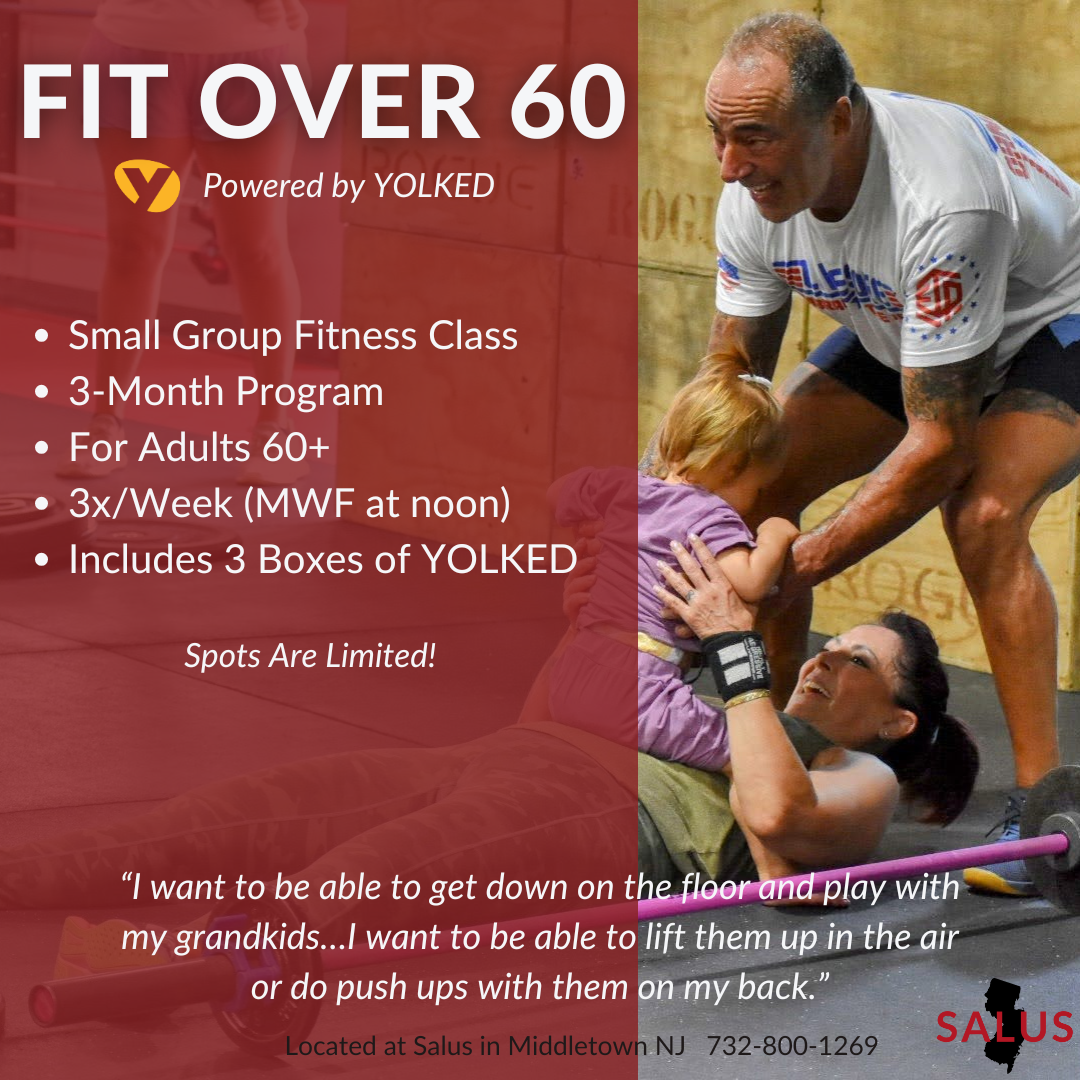How Much Should I Eat? How to Start Listening To Your Body
Two of the most common questions we get at Salus Nutrition is: “How much should I eat?” and “Should I count macros?” Similar to the question: “How much should I be lifting?” the answer is greatly dependent on many different factors. It’s impossible to give out a number without digging into the details, but you can get a head start by recognizing hunger cues (listening to your body) and becoming aware of appropriate portion sizes. Here’s how.
Learn: How Much Should I Eat? By: Listening First
Let me start off by repeating: there isn’t a cookie-cutter approach to determining: “how much should I eat.” Nutrition needs, just like your workouts, are not determined by a one-size-fits-all approach.
What works for them rarely works for you .
The secret: Listening to your body. Find out what you need to feel your best, in your workouts and especially during that typical 3pm slump. Determine what foods affect your energy, sleep, mood, etc. This awareness is essential to improve your LIFE.
Listening to your body will help us shed some light on the emotions that drive our eating decisions, our motivation to workout and helps us to check-in when we’re over-tired, over-stressed or over-emotional. It can also help us overcome the notion that we need to eat until every last bite is cleaned off our plate.
Are You Part of the “Clean Plate Club”?
Many of us are raised with the “Clean Plate Club” mentality. This compulsive need to polish off every single morsel can lead to overeating. Like many of us growing up, I was encouraged to eat everything on my plate. Instead of listening to our bodies and responding appropriately as kids, we often left the table feeling more full than necessary. This ingrained habit still affects many of us today.
Clean Plate Club: When one feels the need to eat all food on their plate (and/or their child’s plate), regardless of whether he/she is fully satiated at that meal.
So how do you overcome this as an adult? By practicing mindful eating and re-learning how to listen to your body’s fullness signals.
Research is still unveiling the many ways that our body is affected by our lifestyle choices. So many connections between our microbiome, stress, inflammation, etc. The food choices we make are literally sending signals to the cells in our body that impacts how we feel (much more on that later).
While it might sound cliche to “listen to your body,” if you want to establish lifelong health changes, it plays a key role.
Eat To 80% Full
If you’ve eaten until you’re full, you’ve probably already overeaten. Time to get back in touch with your hunger/fullness signals with a simple rating of 1-10. (1 = very hungry, 5 = comfortable, 8= satisfied, but not stuffed, and 10 = uncomfortably full).
Rate yourself before you eat and then again midway through your meal. Stop eating when you get to a “8”. Eat until you’re no longer physically hungry, but not to the feeling of being “stuffed” or “full.”
Don’t get hung up on the exact percentage, just shoot for the general idea.
Remember to eat s-l-o-w-l-y. Be patient and listen for that “80% full” signal rather than your social or emotional hunger cues). And don’t hesitate to leave food on your (or your kid’s) plate or pack it up for leftovers.
But, what if you’re experiencing strong cues, like no appetite or feeling hungry all the time?
No Appetite? What Does Hunger Cue Mean?
Lost your appetite?
So often, nutrition topics centers around overeating and weight loss, but undereating is important to address, too. Signs you might not be eating enough include: low energy, headaches, unintentional weight loss, poor sleep quality.
If you’re experiencing a lack of appetite it could be tied to psychological factors such as stress, depression or grief. Take a deep dive into stress management: Read: “ Control Stress Before It Controls You ,” for some great tips on finding a greater sense of calm and clarity in your day.
Stress, even the stress that our body experiences from overtraining, can cause an increase in hormones such as epinephrine and norepinephrine. This can inhibit appetite. It’s essential to incorporate recovery days to allow our bodies to adapt to the stress of exercise, replenish energy stores and repair damaged tissues.
Health-relation conditions may be at play, as well such as postpartum depression and the common cold or flu. During this time, it’s essential to stay hydrated and eat as much whole, nutrient-dense foods as possible. Like it or not, cold/flu season is about to rear its ugly head.
Read: “ Natural Remedies for Cold and Flu Season ,” for some helpful tips.
Hungry All The Time? What Does Hunger Cue Mean?
If you feel hungry all the time, it could be a result of lifestyle factors such as lack of sleep, feeling stressed (there’s stress again), drinking alcohol or being dehydrated. When any of these factors are at play, it can cause our hormone levels to fall out of whack which can lead to a feeling of hunger…when you’re really not.
Dehydration can greatly limit the processes in our body. By drinking enough water, you’re supporting digestion, metabolism and more. Need more convincing? Check out, “ Importance of Staying Hydrated.”
Too many starchy carbs can also affect hunger. Refined carbs not only lack nutrients that our bodies need to function, they lead to a spike in blood sugar…and then a crash, leaving you hungry again.
A lack of protein or healthy fats can also leave you with the urge to snack. Healthy fats and protein can help you feel fuller, longer. Try adding avocado or a teaspoon of nut butter or coconut oil to your protein shake/smoothie and experience satiation all afternoon.
Other common causes of feeling hungry all the time are very much linked to emotional and environmental connections. Whether you’re bored, associate food with a certain event (like always snacking while you watch TV) or obsessing over counting calories, these could lead to overeating.
To help you identify emotional those triggers, simply ask, “Am I hungry?” whenever you feel like snacking. If you truly don’t feel any physical signs of hunger (growling stomach, low energy, etc.), it’s likely that the urge was triggered by emotional or environmental cues.
Test Your Hunger
Then test yourself. If you’re truly hungry, you’ll be down to eat a variety of foods, even a meal, to quiet your rumbling stomach. If you have an emotionally driven craving, you’ll often find yourself standing in front of the fridge with the door wide open whenever you’re bored. Or maybe you’ll feel a craving for a specific type of food such as chocolate or a salty snack.
Keep good tasting, wholesome snacks handy for those hunger pangs. Prepare cut-up vegetables to have handy with hummus or sprinkle plain yogurt with some nuts and frozen organic berries. Even prepare a couple protein shakes with a half a banana and greens ahead of time (store them in a mason jar in your fridge for an easy grab-and-go).
Get Your Portions In Check
So, to answer the age-old question, “How much should I eat,” intuitive eating is the overall goal.
But, it’s also important to become aware of your appropriate portion sizes and/or macronutrient needs. Some individuals may have the patience to weigh and measure their food to determine how many grams of carbohydrates, fats and protein. But for most people, that’s not practical.
Enter : Your hand.
Eating according to your hand guide helps you meet appropriate macronutrient portions without needing to count or measuring anything. And allow yourself to nudge up or down depending on workout days, cycle days, sick days, etc.
Find out more: “ Portion Guidelines Explained ” to get more guidance on finding a good balance for protein, veggies, smart carbohydrates and healthy fats. This goes for meals and snacks.
What’s important to remember is that determining how much you should eat isn’t necessarily about restriction or “being strict.” It’s about learning how to eat in a way that gives your body what it needs to feel good.
The post How Much Should I Eat? How to Start Listening To Your Body appeared first on Salus.





